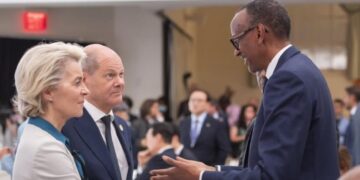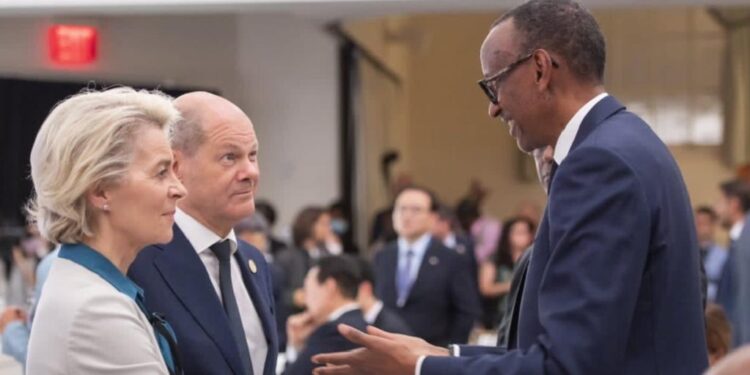By Enyichukwu Enemanna
The European Union is reassessing its raw materials agreement with Rwanda amid allegations of Kigali’s involvement in the ongoing conflict in eastern Democratic Republic of Congo (DRC), EU High Representative Kaja Kallas has said.
While the bloc will not impose sanctions on Rwandan officials, as the US has done, it may take “political decisions” to introduce measures “depending on the situation on the ground,” Kallas stated.
This announcement follows the recent escalation in DRC, where Rwandan-backed M23 rebels captured North Kivu territory in late January, advanced toward Goma, and extended their offensive into South Kivu, triggering international condemnation.
Belgium, DRC’s former colonial power, has pushed for suspending the agreement, a move backed by the European Parliament in a recent resolution.
“We have urged Rwanda to withdraw its troops, and the Memorandum of Understanding regarding critical raw materials will be under review,” Kallas told reporters in Brussels on Monday after an EU foreign ministers’ meeting.
She also confirmed that the EU had suspended its defence and security consultations with Rwanda.
“The situation is very grave and on the brink of a regional conflict,” Kallas said. “Territorial integrity is non-negotiable, whether in Congo (DRC) or Ukraine. The UN Charter applies everywhere.”
The Memorandum of Understanding, signed in February 2023, is part of the EU’s Global Gateway, a €300-billion initiative aimed at securing essential materials for microchips and electric vehicles while reducing reliance on China.
More than €900 million from the Global Gateway fund has been allocated to Rwanda.
Former EU International Partnerships Commissioner Jutta Urpilainen described the agreement as ensuring a “sustainable, transparent, and resilient value chain for critical raw materials.”
The deal recognizes Rwanda as a significant player in global tantalum extraction and a producer of tin, tungsten, gold, and niobium. It also highlights the country’s potential in lithium and rare earth extraction, both crucial for electric vehicle batteries.
While the agreement has not yet taken effect, mounting pressure on Brussels to suspend it has grown in light of M23’s recent territorial gains.
Kallas’ remarks signal a shift in EU policy towards Rwanda, whose President Paul Kagame has traditionally maintained strong ties with European leaders.




































